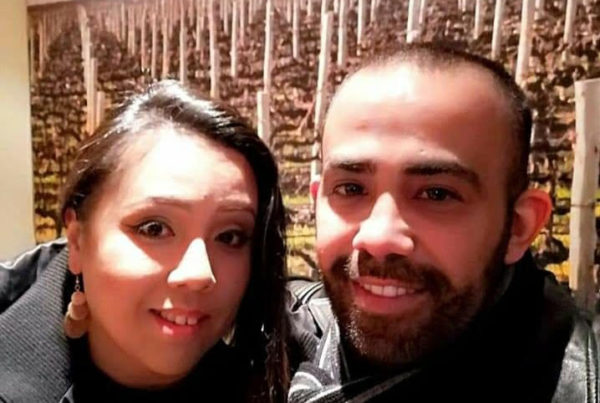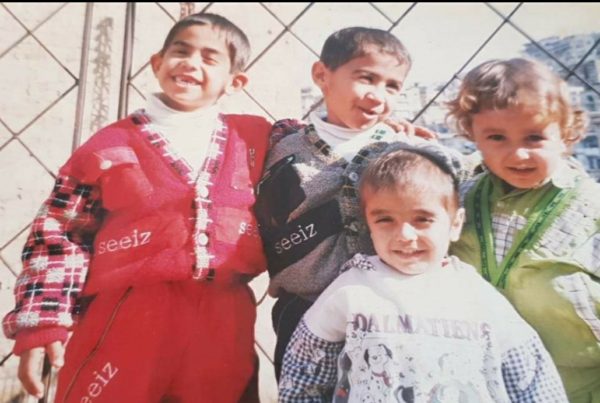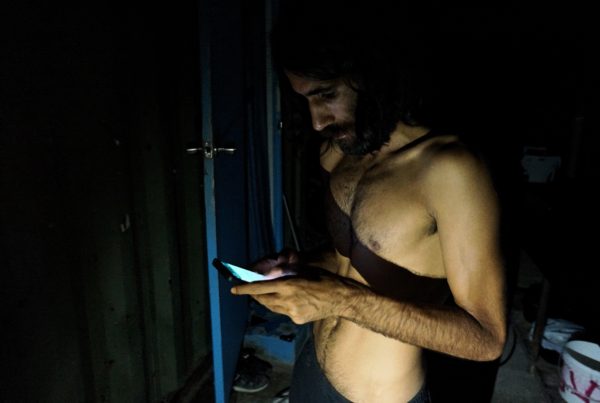Firstly, I’d like to pay my respects to the traditional custodians of this land on which we stand. It is a privilege and an honour to be speaking before such an amazing crowd. I’d like to congratulate you all for being here, for always being here. When it is so easy to not bother. When it is so easy to go to the beach or stay at home. In an era that seems to be known for political apathy, you have taken the time to stand up for what you believe. You are here supporting those you do not know. You are fighting for those you could easily forget. You are here for those who most need our help.
I’d also like to congratulate Tony Abbott and his government for their generous offer to resettle 12 000 Syrian refugees. Just as we protest against our failures we must celebrate our successes. And the new life and opportunity we can provide these poor people should encourage all of us to keep placing pressure on the government to assist those in need. Unfortunately, these places were only made available at the expense of those imprisoned in Nauru and Manus Island, those resettled in impoverished nations, and those turned back to unknown fates in Indonesia. Unfortunately, this was one piece of joy in an otherwise dark few years for human rights in Australia.
We have a grave issue on our borders where we need to prevent people from getting on boats and risking their lives at sea. We have been told that a deterrence policy is the only way to “save lives at sea”. We have been told that offshore detention, that turning back boats, and that the resettlement of refugees in impoverished nations is the only way to “save lives at sea”. At the same time, deterrence is a policy that incarcerates children. It is a policy that puts women at risk of sexual and physical assault. It is a policy that knowingly threatens the mental health of all detained resulting in suicide attempts and self harm. It is a policy that has resulted in the death of Reza Berati at the hands of a detention centre employee for which no conviction has yet been made. It is a policy that our government attempts to hide from us and attempts to protect with unjust laws. It is a policy without accountability. It is a policy that covers up abuses and demonises whistleblowers. In reality our humanitarian immigration policy is a system of abuse justified by the dwindling notion that as long as we stop people drowning between Indonesia and Australia we can do whatever we want to people. I am a former worker from Nauru. I have seen first hand how the system legitimises abuse. I have seen how our politicians’ language legitimises abuse.
What does this say about our nation if the only way we can solve this problem is with cruelty? In what way can we say our immigration policy is compatible with who we are as a people?
To take Primo Levi’s words on governance:
“A country is considered the more civilised the more the wisdom and efficiency of its laws hinder a weak man from becoming too weak and a powerful one too powerful.”
In this regard, Australia is failing. We have allowed the most weak to become weaker. We have governed with cruelty rather than compassion.
The Australian people have been sold this policy with slogans and misinformation. We have seen the government attack those who oppose it. Whether that be Nicole Judge, the former McDonald’s employee come whistleblower, or Gillian Triggs and the Australian Human Rights Commission. The continual propaganda peddled by the government and certain sections of the media is disingenuous. It insults the intelligence of us Australians. It undermines our democratic ideals and establishments. It distorts the national debate and fails to reach the core issues of our asylum seeker policy.
We stand here together, all across the nation, demanding an end to the lies, an end to abuse, an end to treating Australians with contempt, an end to treating the international community with contempt. However, as advocates for human rights, as people who are outraged by the abuses in our offshore detention systems, we have to recognise the difficulties of managing our borders.
If we were given the opportunity to overhaul our refugee policy tomorrow would we be able to devise a solution that would not inflict cruelty upon people asking for protection but would maintain a fair and ordered system of settlement? If we closed down offshore detention centres, how would we manage arrivals to Australia by boat? If people were encouraged to come to Australia for protection, how would we deal with the overwhelming demand? And what would happen if more people arrived than we have places for? These are not easy questions to answer but that doesn’t mean we shy away from them and revert to cruelty.
A country that governs with cruelty is not a just nation. A country that champions cruelty is not a civilised nation. We must find a better way. And in that better way lies regional cooperation with our neighbours to provide more viable options for resettlement in our region, a greater refugee annual intake, and a change in attitude and language towards refugees and our international responsibility to protect them.
I believe we have an opportunity in Australia to start a new conversation. On the day he assumed leadership of the Liberal Party, the newly appointed Prime Minister, Mr Malcom Turnbull, said:
“We need a style of leadership that explains those challenges and opportunities, explains the challenges and how to seize the opportunities. A style of leadership that respects the people’s intelligence, that explains these complex issues and then sets out the course of action we believe we should take and makes a case for it. We need advocacy, not slogans. We need to respect the intelligence of the Australian people.”
So, I call upon you Mr Turnbull to respect our intelligence. Explain to the Australian people that this is a fraught and complex issue that cannot be solved with the simple mantra “stop the boats”. Explain to the Australian people that the majority of people coming to Australia by boat will most likely meet the United Nations criteria for refugees. Explain that there is a percentage of these people who are making fraudulent claims, or who are criminals, or who are economic migrants. But explain to the Australian people that this is a consequence of any welfare system and it should not stop us from seeking to protect those who need it. Explain to the Australian people that we need to stop people from risking their lives taking boats to Australia but explain that in doing so we cannot risk our integrity as a people and as a nation in propagating cruelty. Explain that we need to encourage people to seek safer avenues of resettlement but in doing so we need to actually provide those alternatives to getting on boats. Explain that there are more people in the world who need protection than we have places to offer. Explain that in demanding change we must offer alternatives. And explain that regardless of who these people are and how many of them arrive on our doorstep they need to be treated with dignity, respect, and compassion.


